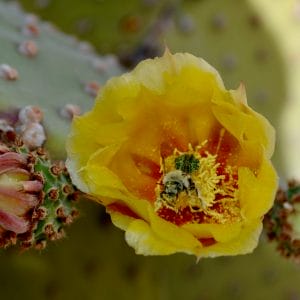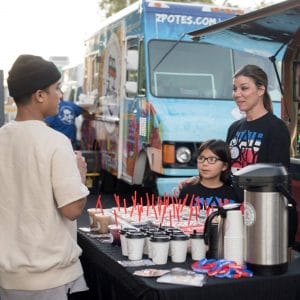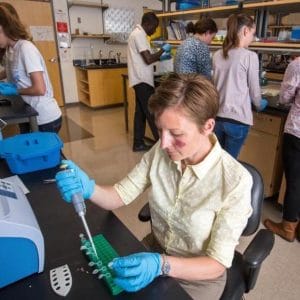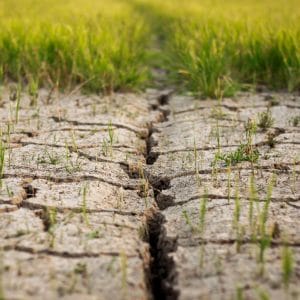Interview with food systems activist Raj Patel
Swette Sustainable Food Systems

Interview with food systems activist Raj Patel
After sustainable food activist Raj Patel delivered a Wrigley Lecture in November, we conducted a follow-up interview, which covered topics ranging from the need for collective action to what Patel wishes the media would report on in regards to our food system.

Meet affiliated faculty Carol Johnston
Read on for an interview with Carol Johnston, associate dean and professor in the College of Health Solutions.

Protecting the hive: ASU scientists discover path to colony-level immunity in honeybees
Honeybees frequently make international news, as their global decline threatens the world’s food supply. Since honeybees pollinate the majority of crops that humans use for food, scientists have been searching for a way to maintain healthy bee populations.

A Conversation with Dr. Raj Shah, President, Rockefeller Foundation
It was delightful to welcome Raj Shah to the ASU DC campus and interview him about the work of the Rockefeller Foundation and his insights on how we meet the challenge of achieving global food security.

ASU food entrepreneur program ready for 2019
The Swette Center for Sustainable Food Systems at Arizona State University is excited to learn more from one of our sister food programs on campus, Prepped, in 2019. ASU recently announced that Prepped has secured funding for the next two years for its incubator program helping entrepreneurs in food-based businesses.

Farm bill passes, but victories are overshadowed
Swette Center Executive Director Kathleen Merrigan was recently quoted in an article by the Union of Concerned Scientists. The article, called “The 2018 Farm Bill Is Now Law. But the Shenanigans Continue…,” describes that Agricultural Improvement Act of 2018 (known as the “farm bill”) was authorized, but many complications have arisen.

ASU rises in national research rankings
Continuing on its path as a rapidly growing research enterprise, Arizona State University reported $545 million in research expenditures for fiscal year 2017, up from $518 million in FY16, according to a recent report by the U.S. National Science Foundation.

Global Locust Initiative wins USAID/OFDA grant to launch pilot project in Senegal
GLI won a half-million-dollar grant from the Office of U.S. Foreign Disaster Assistance to test whether soil amendments to millet fields in Senegal decrease locust outbreaks, improve millet yields and increase farmer livelihoods.

Former U.S. Deputy Secretary of Agriculture and Stockholm Water Prize co-recipient to be keynote speakers at Phosphorus Forum 2019
The Sustainable Phosphorus Alliance has announced that Kathleen Merrigan and Bruce Rittmann will be the keynote speakers at Phosphorus Forum 2019, scheduled for April 5, 2019, in Washington, D.C.

Conservation International partners with ASU’s Decision Theater on innovative tool
These are well-known consequences of economic development threatening human and ecological health. International efforts to mitigate these threats are also familiar, including reducing greenhouse gas emissions, protecting endangered animals and cleaning our air and waterways.

ASU alumna opens second community garden
After taking a class on health advocacy in fall 2017, Catherine Daem, now a graduate of Arizona State University's College of Health Solutions, wanted to find a solution to the Valley's local food deserts and swamps by becoming a community garden advocate.

ASU researcher finds clues to bee survival
According to new research done at Arizona State University, having the right bees "pick up the food" is how honeybees successfully exploit their environments so colonies thrive. Similar to bosses figuring out which of their employees are the most reliable, bees are excellent at distinguishing which of their comrades are best fit to perform each specific task for the hive.